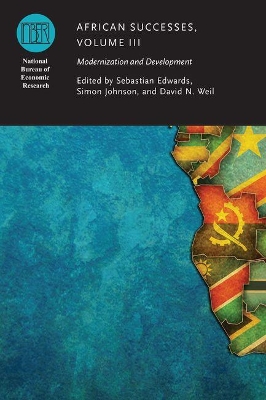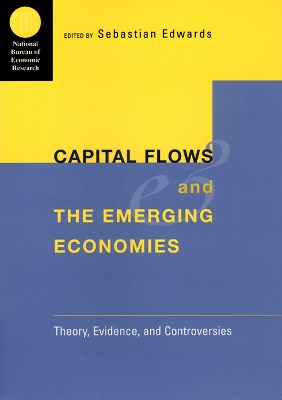(NBER) National Bureau of Economic Research Conference Reports (CHUP)
2 total works
African Successes, Volume III
by Sebastian Edwards, Simon Johnson, and David N. Weil
Published 1 September 2016
Studies of African economic development frequently focus on the daunting challenges the continent faces. From recurrent crises to ethnic conflicts and long-standing corruption, a raft of deep-rooted problems has led many to regard the continent as facing many hurdles to raise living standards. Yet Africa has made considerable progress in the past decade, with a GDP growth rate exceeding five percent in some regions. The African Successes series looks at recent improvements in living standards and other measures of development in many African countries with an eye toward identifying what shaped them and the extent to which lessons learned are transferable and can guide policy in other nations and at the international level. The third volume in the series, African Successes: Modernization and Development looks at the rise in private production in spite of difficult institutional and physical environments. The volume emphasizes the ways that technologies, including mobile phones, have made growth in some areas especially dynamic.
The 1990s witnessed several acute currency crises among developing nations that invariably spread to nearby at-risk countries. These episodes - in Mexico, Thailand, South Korea, Russia and Brazil - were all exacerbated by speculative foreign investments and high-volume movements in capital in and out of those countries. Insufficient domestic controls and a sluggish international response further undermined these economies, as well as the credibility of external oversight agencies like the International Monetary Fund. This volume examines the correlation between volatile capital mobility, currency instability, and the threat of regional contagion, focusing particular attention on the emergent economies of Latin America, Southeast Asia and Eastern Europe. Together these studies offer a new understanding of the empirical relationship between capital flows, international trade and economic performance, and also afford key insights into realms of major policy concern.

